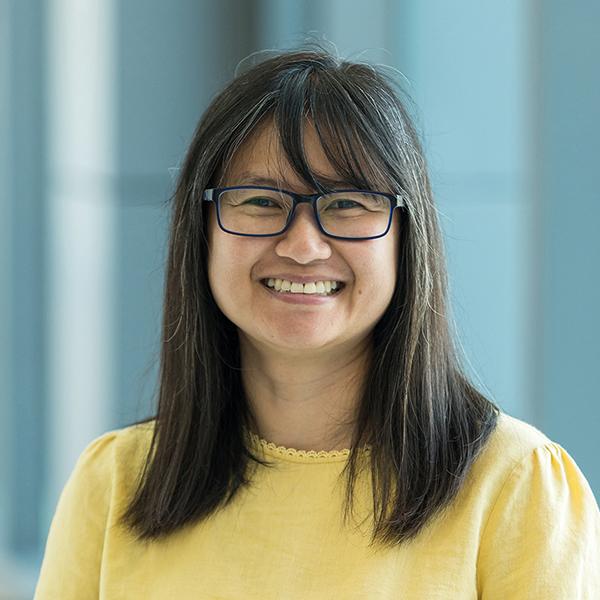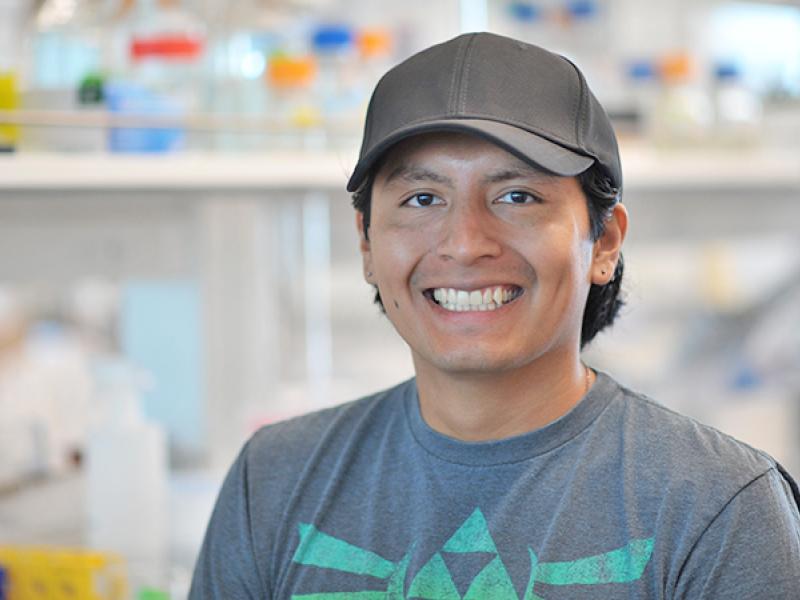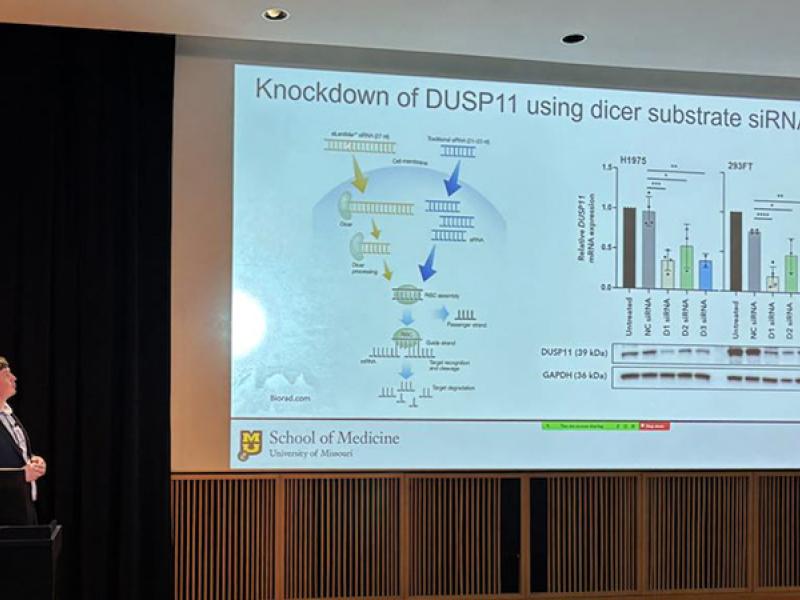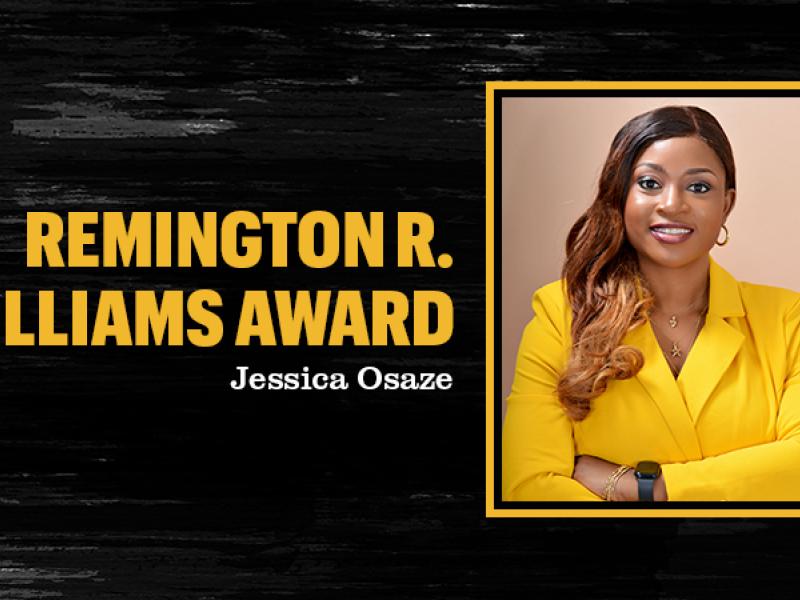The Integrative Physiology program provides comprehensive training in biomedical research at the cellular, organ-system and whole-body levels. Students in our program benefit from a highly collaborative environment, selecting laboratory rotations and faculty mentors engaged in leading-edge research that align with their research interests and specific career goals.
The diverse faculty work in academic and clinical departments within the School of Medicine, College of Veterinary Medicine College of Arts & Science (A&S) and College of Agriculture, Food & Natural Resources (CAFNR). Research expertise in the Integrative Physiology program includes cardiovascular physiology and pharmacology, diabetes and obesity, muscle physiology, neuroscience, renal physiology, molecular and cellular physiology and more. The research environment provides well-rounded training encompassing MU’s commitment to translational bench-to-bedside research. Graduates will enter their careers trained in sophisticated approaches to understanding molecular and cellular function as they relate to integrative physiology and the mechanisms of human diseases.
Students in the Integrative Physiology emphasis area will have the ability to work in laboratories throughout MU’s campus based on their choice of primary mentor and research collaborators. Many Integrative Physiology laboratories are housed in the following departments and facilities:
- School of Medicine
- NextGen Precision Health building
- Bond Life Sciences Center
- Dalton Cardiovascular Research Center
Students in Integrative Physiology and other emphasis areas will also have access to many core facilities to assist in their doctoral research:
- Animal Modeling Core
- Cell and Immunobiology Core
- DNA Core
- Electron Microscopy Core
- Nuclear Medicine and PET Imaging Center
- OneHealth Biorepository
- Veterinary Medical Diagnostic Laboratory
- Dalton Murine Phenotyping Core
- Bioinformatics and Analytics Core
- University of Missouri Research Reactor
- Advanced Light Microscopy Core
- Cognitive Neuroscience Systems Core
- Gehrke Proteomics Center
- Metabolomics Center
Professional development and career opportunities
Students in Integrative Physiology will have many professional development opportunities outside their coursework and laboratory research training. These are optional experiences tailored to each student’s training plan and career goals that often include:
- Presenting research at meetings: Within MU, our students often choose to present their research at MU Cardiovascular Day, Health Sciences Research Day and/or Life Sciences Week. National meetings are typically selected based on specific research interests.
- Applying for predoctoral fellowships: Securing a fellowship from the National Institutes of Health, National Science Foundation, American Heart Association or other source provides important grant-writing experience and looks fantastic on a student’s CV.
- Service experience: Seeking experience serving on various committees within MU and through research societies such as the American Physiological Society provides networking opportunities and understanding of research policy/administration.
- Mentoring experience: Supervising an undergraduate researcher in the laboratory provides invaluable experience for students looking for careers that include mentorship.
The Integrative Physiology program prepares students for research and teaching careers in academic, hospital, industry, government and other settings where broad biomedical sciences and physiology training are required. Below are examples of job titles accessible with your degree:
- Academic research: assistant/associate professor, staff scientist, research assistant professor, postdoctoral fellow.
- Research administration: program coordinator, grant writer, laboratory manager, core facility director, clinical research coordinator, IRB/IACUC staff, health scientist.
- Industry: laboratory scientist/investigator, applications specialist, product manager, medical science liaison, medical affairs, scientific technical support, product sales, market research analyst, medical device researcher, quality assurance/quality control specialist.
- Teaching: teaching professor (higher education), teacher (K-12).
- Government: military scientist (civilian), regulatory affairs specialist, science policy specialist, grants management specialist, research administration officer.
- Science education and outreach: curriculum developer, outreach coordinator, science career specialist.
- Science writing and communication: science writer, medical writer, copy editor, science journalist, journal editor.






